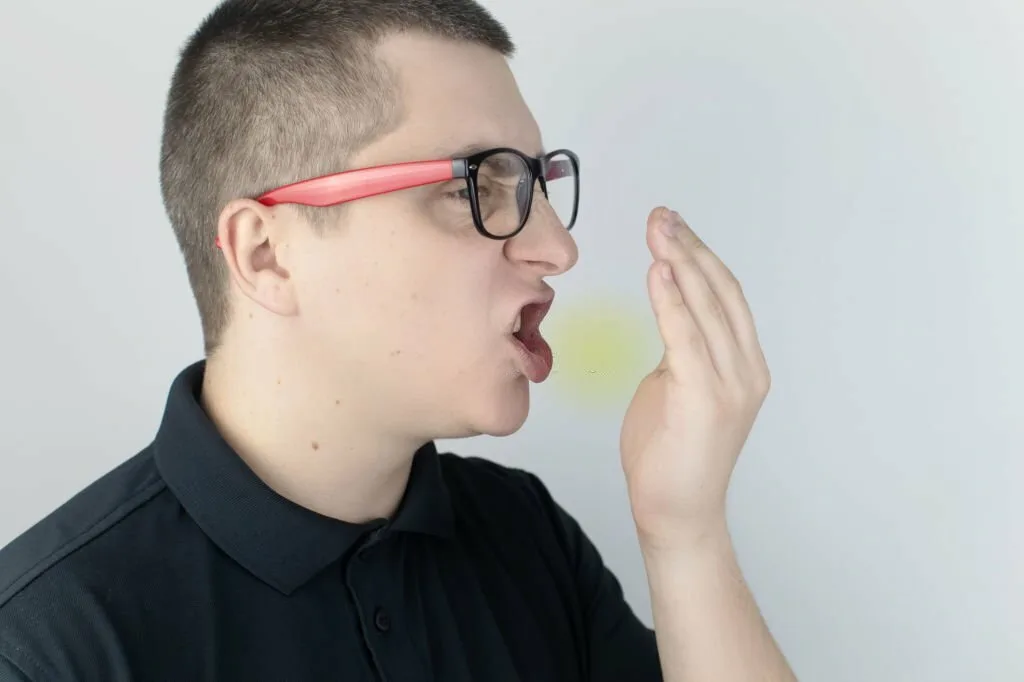Bad breath, also known as halitosis, is a common condition that can be caused by a variety of factors. The most common cause of bad breath is poor oral hygiene. When food particles and plaque are not removed from the teeth and gums, they can decompose and produce foul-smelling gases.
Other causes of bad breath include:
Dry mouth: Saliva helps to keep the mouth clean and free of bacteria. When saliva production is reduced, bacteria can build up and cause bad breath.
Smoking: Smoking dries out the mouth and damages the tissues in the mouth, both of which can lead to bad breath.
Onions and garlic: Onions and garlic contain sulfur compounds that can be released into the breath after eating.
Coffee and alcohol: Coffee and alcohol can dehydrate the mouth and make bad breath worse.
Certain medical conditions: Some medical conditions, such as diabetes, kidney disease, and liver disease, can cause bad breath.
If you have bad breath, there are a number of things you can do to get rid of it.
1. Practice good oral hygiene: Brush your teeth twice a day for two minutes each time, and floss once a day to remove food particles and plaque from between your teeth. Be sure to brush your tongue as well, as it can harbor bacteria that cause bad breath.
2. Stay hydrated: Drink plenty of water throughout the day to keep your mouth moist. This will help to flush away bacteria and food particles.
3. Avoid smoking and drinking too much coffee and alcohol: Smoking and drinking too much coffee and alcohol can dry out the mouth and make bad breath worse.
4. Chew sugarless gum or suck on sugarless candy: Chewing sugarless gum or sucking on sugarless candy can help to stimulate saliva production and keep the mouth moist.
5. See your dentist regularly: Visit your dentist for regular checkups and cleanings to remove plaque and tartar buildup. Your dentist can also identify any underlying medical conditions that may be causing your bad breath.

6. Eat a healthy diet: Eating a healthy diet can help to improve your overall oral health and reduce the risk of bad breath. Avoid foods that are high in sugar and processed carbohydrates, as these can feed the bacteria in your mouth.
7. Use a mouthwash: Mouthwash can help to kill bacteria and freshen the breath. Choose a mouthwash that contains an antiseptic such as chlorhexidine or cetylpyridinium chloride.
8. Clean your dentures or dental appliances regularly: If you wear dentures or dental appliances, be sure to clean them thoroughly every day to remove plaque and food particles.
9. Use a tongue scraper: A tongue scraper is a tool that can be used to remove bacteria and plaque from the tongue. Use a tongue scraper once a day to help reduce bad breath.
If you have tried all of these tips and your bad breath persists, see your doctor or dentist to rule out any underlying medical conditions.




